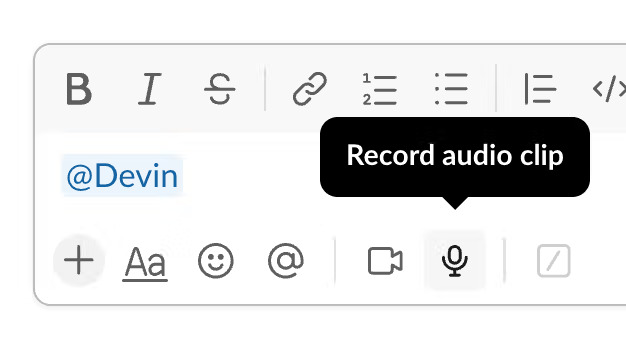Want smarter insights in your inbox? Sign up for our weekly newsletters to get only what matters to enterprise AI, data, and security leaders. Subscribe Now
Last year, Cognition started the AI agent wave with a product called Devin — the world’s first AI engineer. The offering was under wraps for several months, but now it’s generally available and learning new chops very quickly. Case in point: the Scott Wu-led startup has just released Devin 1.2, which brings a bunch of new capabilities to take the AI engineer’s ability to handle entire development projects to a whole new level.
The biggest highlight of Devin 1.2 is its improved in-context reasoning, which makes the agent better at handling and reusing code. It also includes the ability to take voice messages via Slack, which gives users a more seamless way to tell Devin what it has to do.
The development comes at a time when AI-powered agents are being touted as the future of modern work. Experts believe that there will soon be a time when humans and agents will be working together, with the former seamlessly handling repetitive tasks (which is already beginning to happen). Recently, at CES, Nvidia boss Jensen Huang said that in the future, enterprise IT departments would evolve into “HR departments” for AI, responsible for commissioning and maintaining agents working across different functions within the company.
What does Devin 1.2 bring to the table?
While not a major upgrade, Devin 1.2 introduces some interesting capabilities to make the agent better at its job. The number one feature here is the improved ability to reason in context in a code repository. This essentially means Devin can now better understand the structure and content of a repository.
AI Scaling Hits Its Limits
Power caps, rising token costs, and inference delays are reshaping enterprise AI. Join our exclusive salon to discover how top teams are:
- Turning energy into a strategic advantage
- Architecting efficient inference for real throughput gains
- Unlocking competitive ROI with sustainable AI systems
Secure your spot to stay ahead: https://bit.ly/4mwGngO
With this understanding, the agent can identify which file is relevant to a particular task, recognize and re-use existing code and patterns, and be more accurate in suggesting edits or creating pull requests (PRs), reducing errors and manual adjustments.
For developers, this capability would mean accelerated workflows and reduced cognitive load from searching for files, understanding codebases or fixing inconsistent code.
The other notable update with Devin 1.2 is the introduction of voice messages. Devin can also take voice commands from users, via Slack.

All one has to do is tag Devin in a Slack chat, hit the “Record audio clip” button and describe the task or feedback the AI engineer should execute. Devin will prepare a step-by-step action and begin to execute the command using its developer tools — its own shell, code editor and browser.
The move simplifies how one interacts with the agent, saving the hassle of typing natural-language prompts into Devin’s chatbot-style interface.
Improved login process, new enterprise controls
Cognition has also made some usability improvements in Devin.
For instance, in the new release the company is introducing machine snapshots to simplify the login process for Devin’s workspace.
“If you log in for Devin during onboarding with Devin’s browser, we’ll save the cookie for future sessions (if the cookie expires, you’ll need to provide credentials for Devin in Secrets as well). This also unblocks authentication processes that require visiting a URL on Devin’s machine,” the company wrote in a blog post.
Cognition is also introducing enterprise accounts, where organization admins will get a centralized console to manage multiple Devin workspaces, including members and their access controls, as well as billing for them.
Finally, the company is adding a usage-based billing model, allowing users to pay for additional capacity beyond their subscription limits. This way, once the users have exhausted their monthly allocation of ACUs, they can continue building beyond that limit by paying for extra usage.
The model has been active since January 9, with users able to set their additional usage budgets according to their needs. This allows users to maintain control over spending while ensuring uninterrupted service when they need additional capacity.
Currently, Devin is generally available for engineering assistance at a starting price of $500 a month — with no seat limits. Multiple enterprises are incorporating it into their workflows, including Lumos, OpenSea, Curai Health, Nu Bank and Ramp.
However, it’s worth noting here that not many public reviews detailing how exactly Devin performs in enterprise environments have been posted yet. The only user experience of the AI engineer that’s out there is from researchers from Answer.ai who found that it is far from perfect and struggles with issues like producing overly complex, difficult-to-understand code, creating unnecessary abstractions, generating false positives and failing to understand complex technical challenges.
“Out of 20 tasks, we had 14 failures, 3 successes (including our 2 initial ones), and 3 inconclusive results. Even more telling was that we couldn’t discern any pattern to predict which tasks would work. Tasks that seemed similar to our early successes would fail in unexpected ways,” they wrote in a blog post.
Growing competition
The enhancements for Devin come as competition in the AI engineering space is also heating up. From GitHub Copilot’s widespread adoption to Magic and Poolside AI raising substantial funding to develop cutting-edge capabilities, the race to create the ultimate AI coding assistant is intensifying. Each player is striving to redefine software development, promising faster workflows, reduced cognitive load, and seamless collaboration between humans and AI.
As these AI-powered agents continue to evolve, they’re not only transforming how developers work but shaping the future of modern work itself, where efficiency and innovation are driven by a partnership between humans and machines.
By 2028, Gartner estimates, 33% of enterprise software applications will include agentic AI, enabling autonomous decision-making in 15% of day-to-day work.


